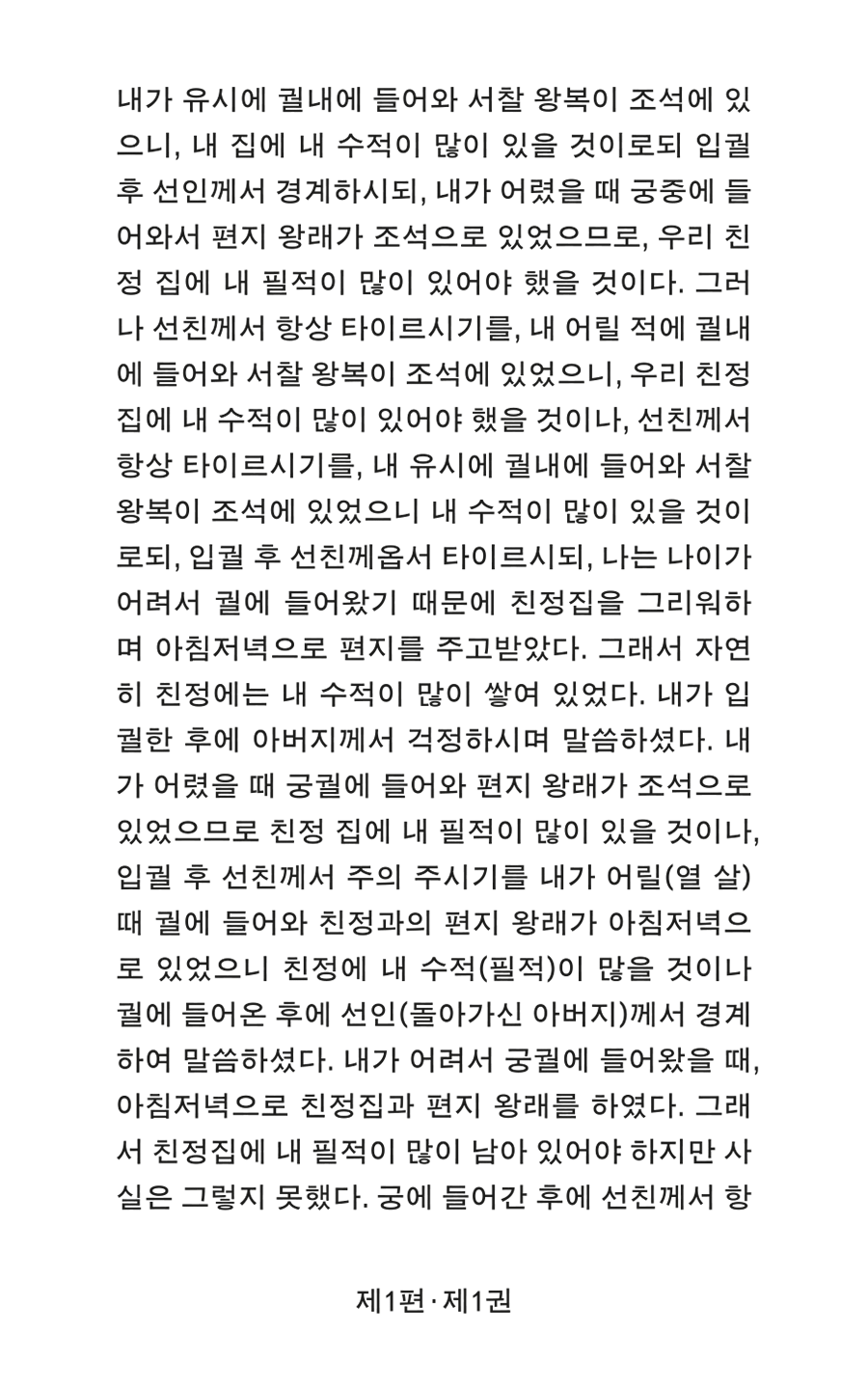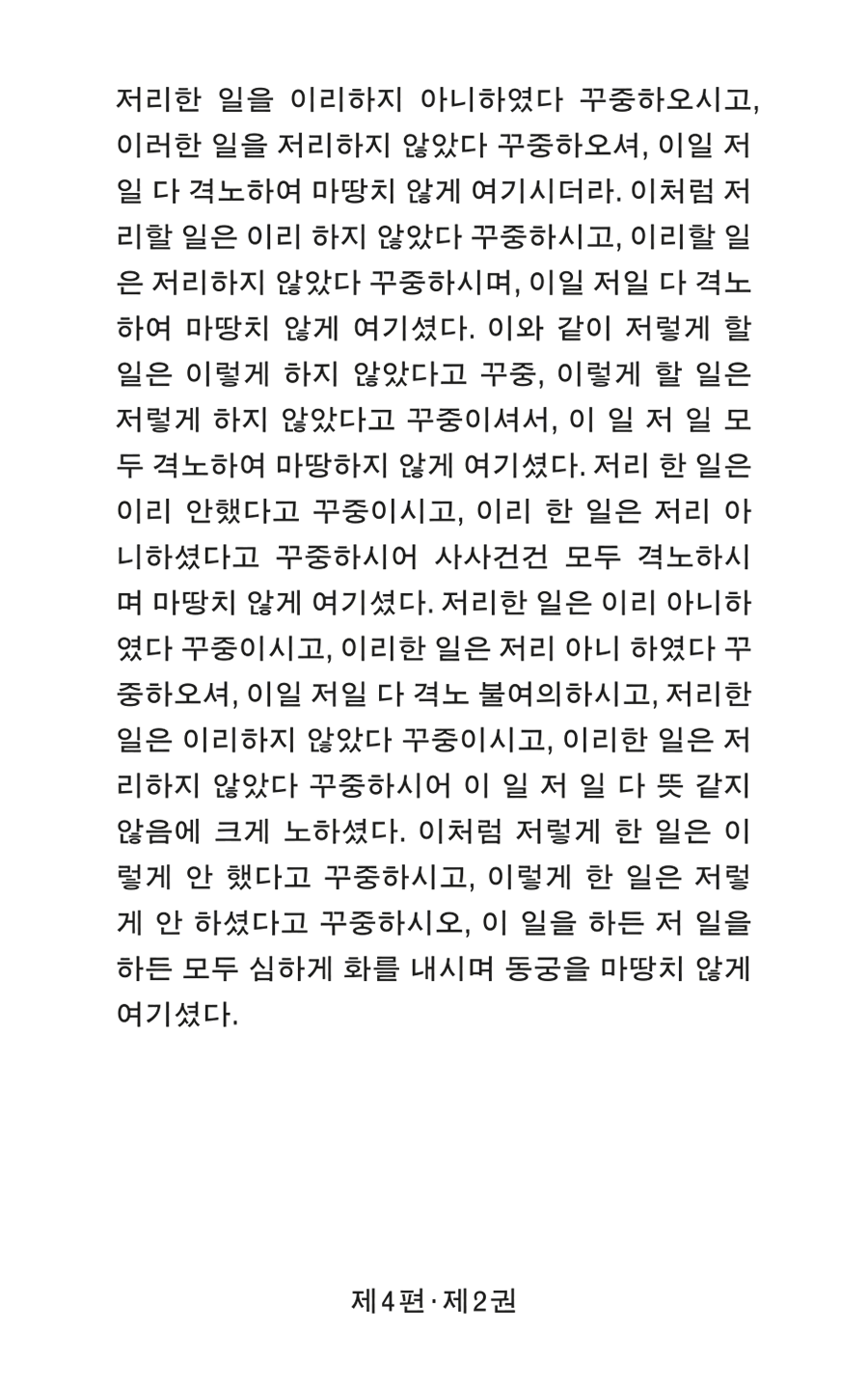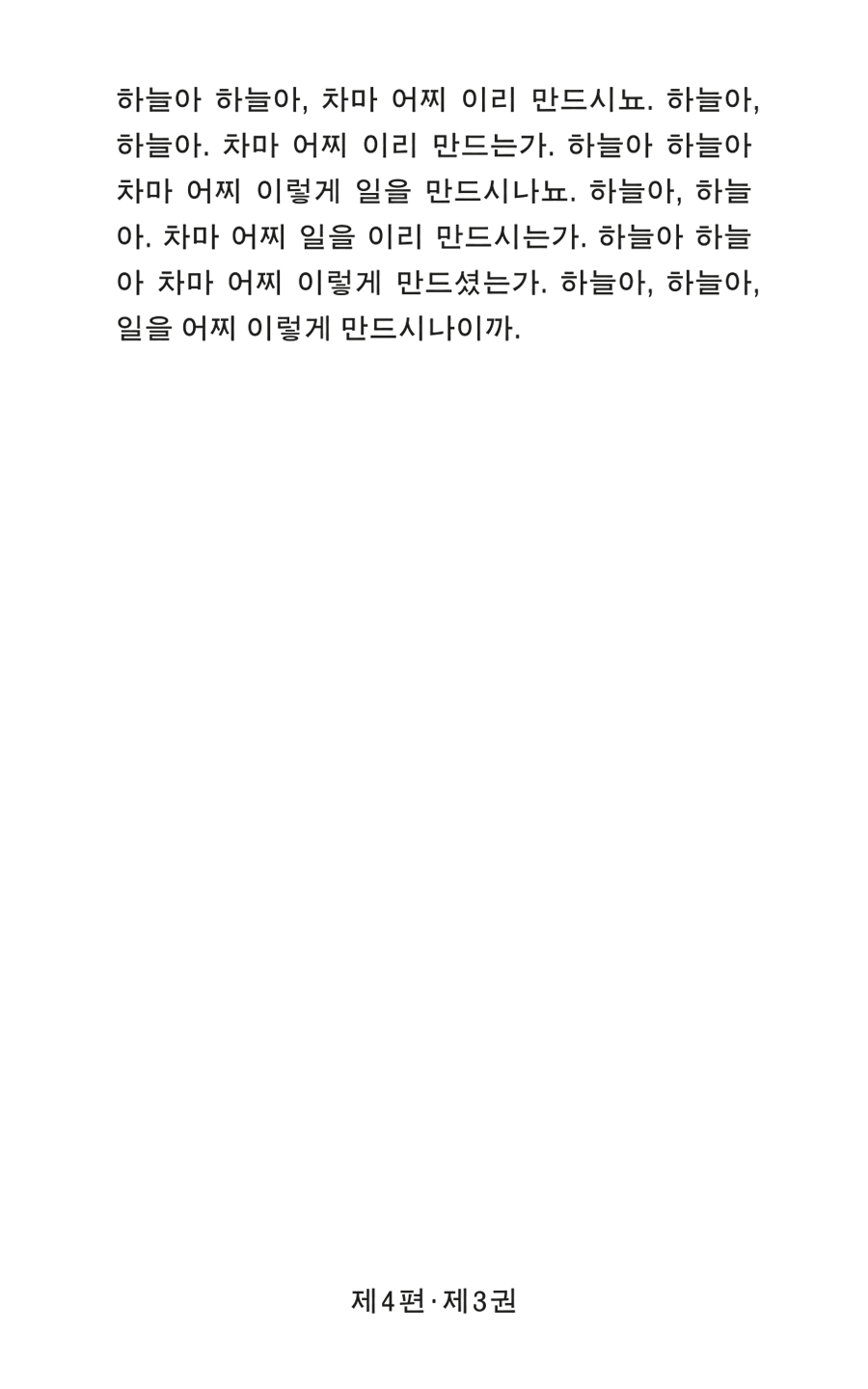

1961–2020
- 2020
- digital print on canvas
- 6 parts, 192 x 120 cm each
Born, A Woman took the historical text of Hanjungnok as a reference point to explore the contemporary notions of “womanhood.” Hanjungnok or The Memoirs of Lady Hyegyeong is known to have been written from 1795 through 1805. As a representative work of classical Korean literature, it has been published in many modern editions: currently, there are about twenty-four editions including comic books and textbook editions. They are based on the same original, yet the structure and the tones differ considerably depending on the publication intent.
1961–2020 is an attempt to read thirteen major editions of Hanjungnok – from the 1961 Minjung Seogwan edition to the 2020 Mirbook Company edition – simultaneously. We picked six outstanding sentences from the original text, sampled the versions of them in the books, and put them together into six “pages” of text: thus, each page repeatedly recites one sentence from Hanjungnok in thirteen variations. The editions used in this work include:
Minjung Seogwan, 1961
Seomundang, 1975
Bumwoosa, 1988
Myungmundang, 1994
Ilsin, 2001
Ihoe, 2002
Shinwon, 2002
Seohae Munjip, 2003
Cheongmoksa, 2003
Sodam, 2004
Hyeonamsa, 2009
Mirbook Company, 2020
Star Books, 2020
Hanjungnok was originally written as a memoir by an individual, but as it had not been planned in advance, the text displays considerably diverse tones depending on the period and the author’s personal situation. The editorial and publication processes of modern times have also added further richness to the original. 1961–2020 suggests how the personal records are interpreted, repeated, and transmitted by the multitude of voices to become a shared history.
- Project type:
- ambiguous
- Typeface:
- Jibaek
- Commissioner:
- Suwon Museum of Art





